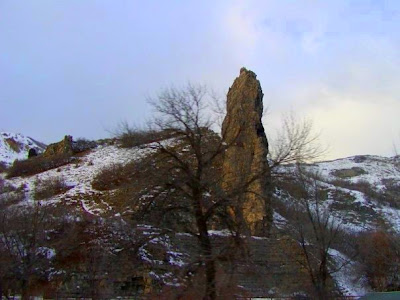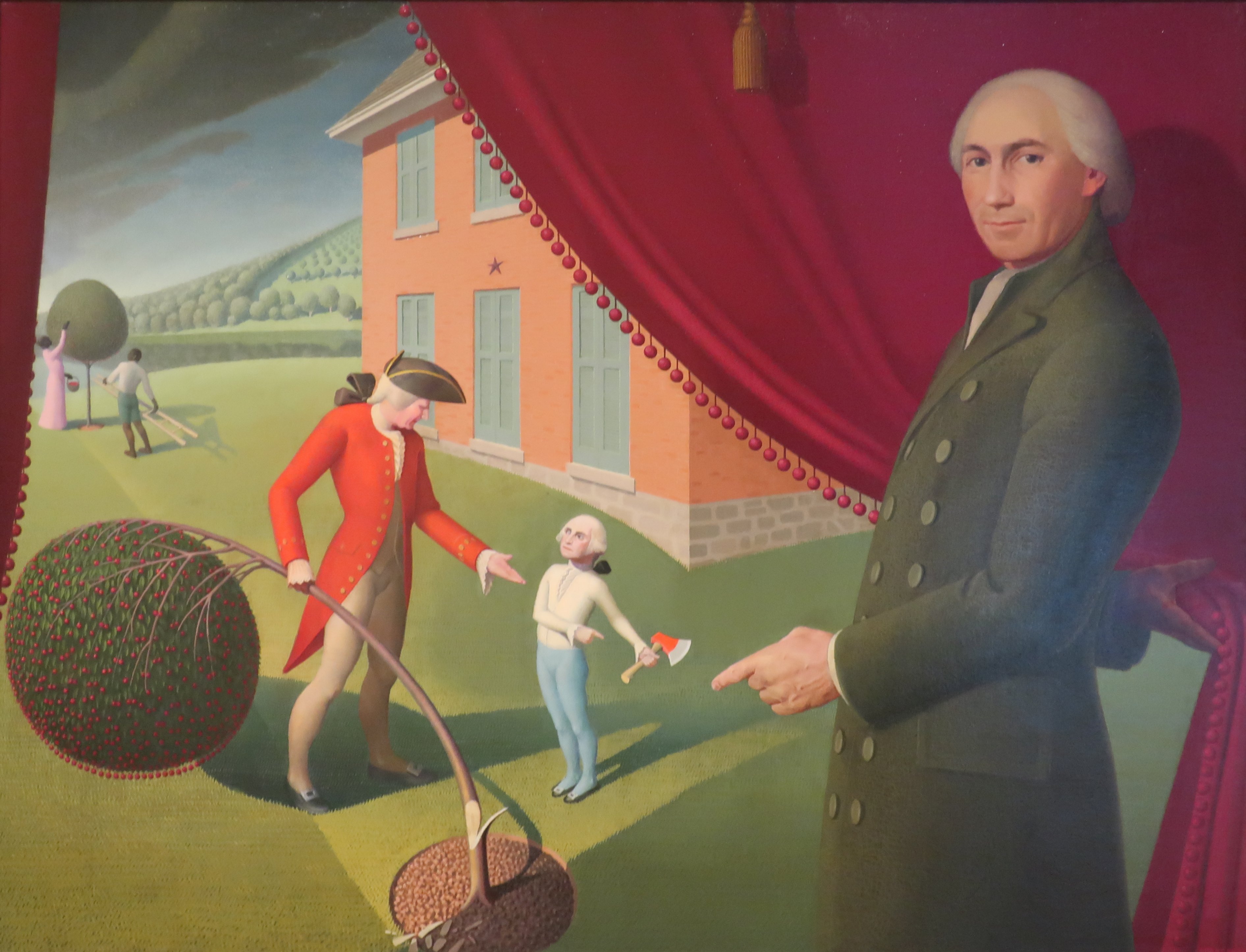Dear friends,
In honor of President's Day this week, I assigned a literature study on the topic of honesty to my home school co-op English class. In addition to the assignments and discussion notes below, you will also find very useful lists about honesty at http://www.k12.hi.us/~mkunimit/honesty.htm
Discussion: What
is honesty?
·
Honesty is telling the whole truth, in your words, actions, and intentions. It is being accurate. (That does not mean that someone who tells
wrong information is lying. If they
sincerely think it is true, they are
not being deceptive, just mistaken. There can still be negative consequences
for this, especially if the person should have known better, but there is a
difference based on their intention!) Being honest does not mean you need to tell
someone information that is none of their business, or that they would use to
harm other people, or that is unnecessarily hurtful. You should use discretion and only say what you
need to say. You can reply that you
can’t answer a question, or that they need to ask your parent for
information. Or you could just be quiet
in the first place.
·
Dishonesty
is purposely deceiving, or
telling a lie, or using “correct”
words in a way that is intended to mislead
others. This would include telling a “half truth” or concealing
information that needs to be told. Slander
is saying something bad and untrue about another person in order to hurt their
reputation. (This is illegal, and you
can get sued for it.) Another word for
that is a rumor. Dishonesty
includes false impressions and
false advertising.
·
Honesty is being trustworthy and reliable
by actively keeping your promises
and doing what you say you will do.
This includes keeping a
confidence of privacy
when someone tells you something that is not for others to know. (If someone is in danger of hurting themselves
or others, you have an obligation to tell the proper authority, even if you
promised not to.) If you legitimately cannot carry out a promise, like if your
parent forbids you or if you really tried but couldn’t possibly fulfill it
because of some obstacle, then you must be prepared with a reasonable
explanation as soon as possible and
find some other good way of doing what needs to be done. When in doubt, ask your parent for advice!
·
Dishonesty
is “forgetting” (not taking the effort to remember) or neglecting to carry
through on your promises, or telling someone you will do what you never
intended to do in the first place.
·
Honesty is being fair
with money, possessions, and time. It is following the rules to get a
rightful reward. It is your
responsibility to find out what the rules are ahead of time, and not just claim
you didn’t know better!
·
Dishonesty
is cheating or stealing or manipulating or breaking
the rules to get what does not rightfully belong to you. Plagiarism,
which is presenting someone else’s written work as if you wrote it so you can
get credit for it, is dishonest. Saying
that you worked more hours than you did so that you can get paid more is
cheating. Tax evasion, which is filling out tax forms and saying you
made less money than you did so that you have to pay less taxes, is cheating.
·
Honesty is being authentic,
presenting yourself as you are. This
takes humility.
·
Dishonesty
is being hypocritical or fake
to make yourself look better.
LITERATURE
I included three main literature assignments in my lesson packet. Our main class resource is The Book of Virtues edited by Dr. William Bennett.
Literature #1: Read “The Honest Woodman” story adapted by Emilie
Poulsson on page 602 of The Book of Virtues. The story is based
on the poem by Jean de La Fontaine below.
1. Why did the fairy/Mercury show the woodman all three
axes and then give all of them to him?
2. List four ways the story is different from the
poem. Think about details, plot, characters,
setting, style, etc.
3. What are a few of the rewards of honesty? What are some of the consequences of
dishonesty?
“The Woodman
and Mercury”
(partial) by Jean de La Fontaine
A woodman lost his means of gain,
His hatchet, which he sought in vain;
’Twas grief to hear him sob and cry;
He had no tools to sell nor means to buy
His hatchet kept his hope alive,
With that went all his means to thrive.
His cheeks were bathed with tears: he sighed:
“My axe! O my poor axe! ” he cried;
“Restore it, Jupiter, to me,
I’ll own a second life from thee!”
Olympus heard him as he prayed,
And Mercury came down, and said :
“The hatchet's safe, and I can show it,
But are you sure that you will know it?
An axe I found near on the road.”
With that an axe of gold he showed.
This to be his the man denied.
A silver next his virtue tried,
“But that's not mine,” the man replied.
Then
one of wood the god displayed,
“I'm happy now,” the woodman said;
“This is the one for which I prayed.”
The god rejoined; “ Take all the three,
To recompense your honesty.”
He took them all, and thanked the god.
The story soon got spread abroad;
The bumpkins lost their tools, and roared
To get them thus so well restored.
The king of gods which wight to hear scarce knows,
Again sends Mercury to heal their woes;
To each an axe of gold he shows,
And each had thought himself a pretty fool,
Not to have cried at once ; “ Ay, that’s my tool! ”
Bot Mercury gave not that axe, instead
Laid it with vengeance on each rascal’s head.
Be
happy with your lot, and tell no lies,
Nor think to cheat the Ruler of the skies.
Literature #2: In The Book of
Virtues, read “Pinocchio” by Carlo
Lorenzini, starting on page 609.
1. What
did Pinocchio do when he had already lied and the fairy kept asking him
questions?
2. Think about these quotes and then tell one reason
why it is foolish to lie in the first place.
- “Oh
what a tangled web we weave, when first we practise to deceive!” Sir Walter Scott (British spelling practise =
practice)
- “Lying
can never save us from another lie.” Vaclev Havel
- “If
you tell the truth you don't have to remember anything.” Mark Twain
- “No man has a good enough memory to
make a successful liar.” Abraham Lincoln
3. What was the
visible consequence of Pinocchio’s dishonesty?
4. How did his
nose go back to its normal size?
Literature #3: In The Book of Virtues, read the “Lady Clare” poem by Alfred Tennyson starting
on page 639 and “Rebecca's Afterthought” poem by Elizabeth Turner on page 608.
1. What happened
at the birth of Lady Clare?
2. How did the
Lady Clare respond in her words and actions when Alice told her who she really
was?
3. How did Lord
Ronald respond in his words and actions?
4. Why did Rebecca
decide to tell the truth?
Literature # 4: In The Book of Virtues, read “Nobility” poem by Alice Cary on page 654, “Someone
Sees You” story on page 604, and “George Washington and the Cherry Tree”
starting on page 605. If you would like
to read more about honest presidents, check out “Honest Abe” starting on page
620.
1. February 22 is George Washington’s birthday! He was born in 1732 in Virginia. How many years ago was that? Write it out in words. Remember to hyphenate the words for the tens
and ones place. For example, the number
189 would be written out as “one hundred eighty-nine.”
2. Ironically, the story you read today, written by a
parson (preacher) named Mason Locke Weems, may be just a legend rather than a
true story. However, what can we learn
from it anyway? The painting above is by
Grant Wood in 1939. (Look carefully at the patterns and themes in the painting, too!) Here is what one web site says about the story and painting: “Parson
Weems was a bookseller, an itinerant preacher, and the creator of the cherry
tree legend which he wrote in the fifth edition of his book Life of George Washington, the Great. The story was fabricated
[created] by Weems, and its purpose was to express a moral, not historical
fact… Grant Wood satisfied both those who wished to keep the folklore and those
who wished to expose the stories as less-than-truth. He is able to show the
viewer that the story is Parson Weems' invention at the same time that he shows
us an imaginative presentation of the original tale.”
3.
George Washington said, “Labor to keep alive in your breast that little celestial fire called
conscience.” Another quote from him:
“I hope I shall possess firmness and virtue enough to maintain what I
consider the most enviable of all titles, the character of an honest man." Choose
one of these quotes and tell in your own words what it means.
QUOTES ON HONESTY
Bible Verses on Honesty and Truth
“Kings
take pleasure in honest lips; they value a man who speaks the
truth.” Proverbs 16:13
“A
truthful witness gives honest testimony, but a false witness tells
lies.” Proverbs 12:17
“Lord, who may dwell in your sanctuary? Who may live on your holy hill? He whose walk is blameless and
who does what is righteous, who speaks the truth from his heart and has no slander on his tongue, who does his neighbor no wrong and
casts no slur on his fellowman…” Psalm 15:1-3
“I
have chosen the way of truth; I have set my heart on your
laws.” Psalm 119:30
“But whoever lives by the truth comes into the light, so
that it may be seen plainly that what he has done has been done through God.”
John 3:21
“Love does not delight in evil but rejoices with the truth.” 1 Corinthians 13:6
“Instead, speaking the truth in love, we will in all things grow up
into him who is the Head, that is, Christ... Therefore each of
you must put off falsehood and speak truthfully to his neighbor, for we are
all members of one body.” Ephesians 4:15, 25
Other Quotes on Honesty
“Honesty
does not always bring a response of love, but it is absolutely essential to
it.” Ray Blanton
“We tell lies when we are afraid... afraid of
what we don't know, afraid of what others will think, afraid of what will be
found out about us. But every time we tell a lie, the thing that we fear
grows stronger.” Tad Williams
“Honest
men fear neither the light nor the dark.” Dr. Thomas Fuller (1608-1661)
“People
grow through experience if they meet life honestly and courageously. This is
how character is built.” Eleanor Roosevelt
“No
legacy is so rich as honesty.” William Shakespeare (1564-1616)
“Honesty
is the first chapter in the book of wisdom.” Thomas Jefferson
“Honesty
is the best policy.” Benjamin Franklin
“Honesty doesn't always pay, but dishonesty
always costs.” Michael Josephson
“There
is always a way to be honest without being brutal.” Arthur Dobrin
“Truth
is such a rare thing, it is delightful to tell it.” Emily Dickinson
“A lie has speed, but truth has endurance.” Edgar
J. Mohn
“We
all need to know what it means to be honest. Honesty is more than not lying. It
is truth telling, truth speaking, truth living, and truth loving.” James E.
Faust
“The real things haven't changed. It is still
best to be honest and truthful; to make the most of what we have; to be happy
with simple pleasures; and have courage when things go wrong.” Laura Ingalls
Wilder
I hope this has been helpful to you!
Virginia Knowles













